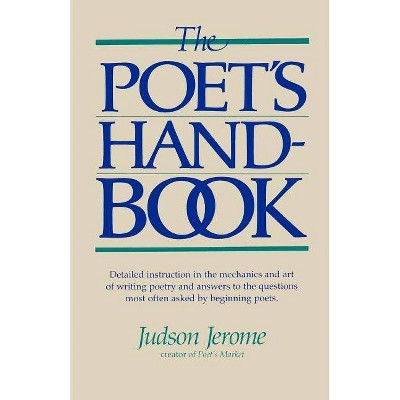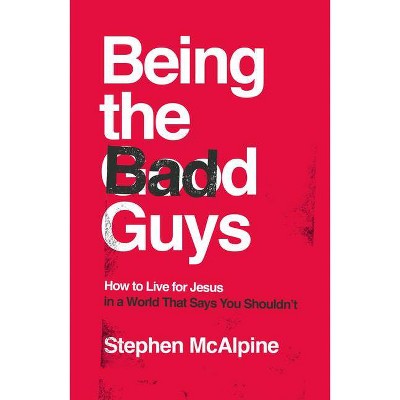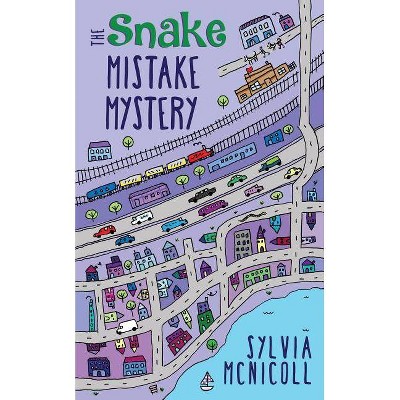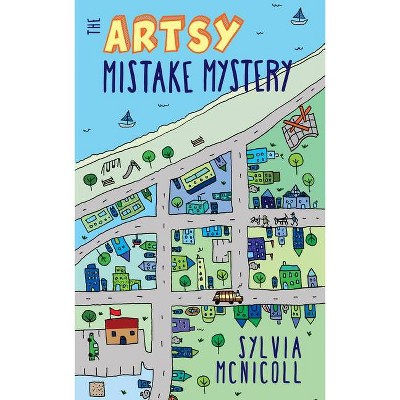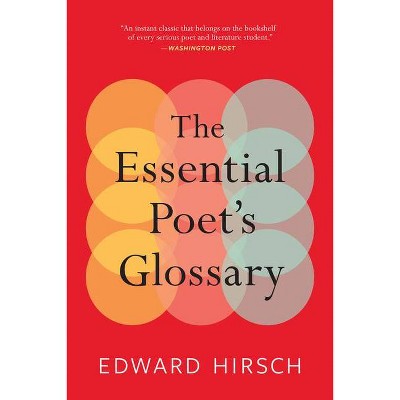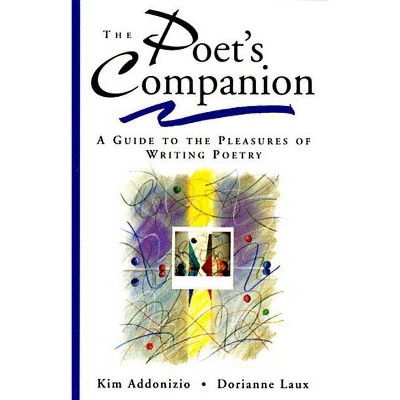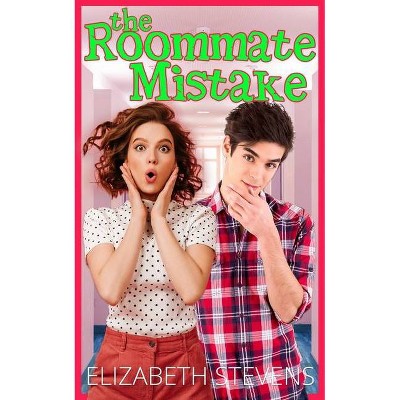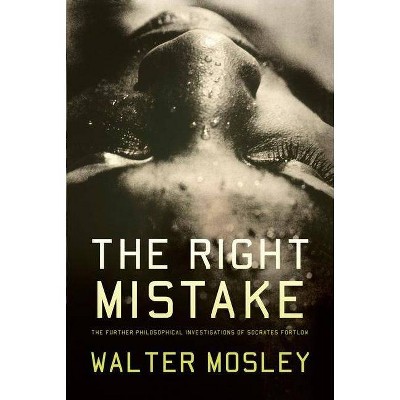The Poet's Mistake - by Erica McAlpine (Paperback)
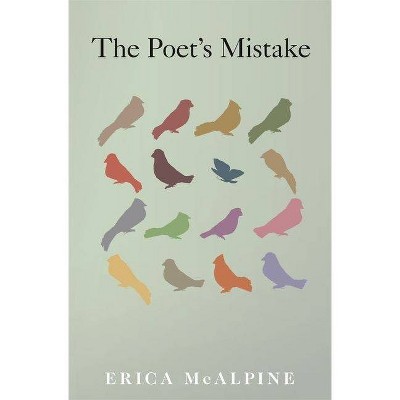
Similar Products
Products of same category from the store
AllProduct info
<p/><br></br><p><b> About the Book </b></p></br></br>"The Poet's Mistake explores mistakes in poems-and critics' generous responses to them-in order to reveal a crucial tension between thinking about poetry's errors as common failures in craft and honoring them as moments of unintended creativity. It makes the case for calling a mistake a mistake, arguing that when readers deny poets the possibility of error, they undermine the very process of creation that they aim to celebrate. The novel, as a genre, has always been given to mistakes, as John Sutherland and others have shown. But poetry, an art form that accepts accident and surprise as qualities somehow integral to its aesthetic practice, seems inherently immune to the possibility. Most of its flaws appear felicitous. Accordingly, critics of poetry have tended to allow mistakes in poems-solecisms, misused words, factual errors-to inform and sometimes even govern their readings. For instance, Keats's use of "Cortez" when surely he means "Balboa" in "On First Looking Into Chapman's Homer" is a historical mistake that, despite having produced an array of justifications from critics (of nearly all methodological persuasions), may have more to say about what we believe poetry to be capable of doing than about the poem to which it belongs. Keats's readers feel a responsibility to make right what his poem got wrong. This book begins by asking: why should it be so? By uncovering different kinds of mistakes that poets have made from Romanticism onward, when notions of selfhood become more closely linked with the lyric voice, and, more important, by analyzing their reception, the book by Erica McAlpine raises certain questions about intentionality. For instance, is there a difference between an accident and a mistake? Does the word mistake imply authorial intention? Is it possible for a poet to err without meaning to, either consciously or unconsciously? (Even Freud differentiates mistakes "deriving from repression" from those that "are the result of real ignorance.") In answering these questions using specific examples from poets including William Wordsworth, John Clare, Robert Browning, Emily Dickinson, Hart Crane, Elizabeth Bishop, Seamus Heaney, and Paul Muldoon, this book identifies certain readings of mistakes as unnecessary justifications and uses the impulse to justify as a way of defining the qualities of poetry that distinguish it from other modes of writing"--<p/><br></br><p><b> Book Synopsis </b></p></br></br><p><b>What our tendency to justify the mistakes in poems reveals about our faith in poetry--and about how we read</b> <p/>Keats mixed up Cortez and Balboa. Heaney misremembered the name of one of Wordsworth's lakes. Poetry--even by the greats--is rife with mistakes. In <i>The Poet's Mistake</i>, critic and poet Erica McAlpine gathers together for the first time numerous instances of these errors, from well-known historical gaffes to never-before-noticed grammatical incongruities, misspellings, and solecisms. But unlike the many critics and other readers who consider such errors felicitous or essential to the work itself, she makes a compelling case for calling a mistake a mistake, arguing that denying the possibility of error does a disservice to poets and their poems. <p/>Tracing the temptation to justify poets' errors from Aristotle through Freud, McAlpine demonstrates that the study of poetry's mistakes is also a study of critical attitudes toward mistakes, which are usually too generous--and often at the expense of the poet's intentions. Through remarkable close readings of Wordsworth, Keats, Browning, Clare, Dickinson, Crane, Bishop, Heaney, Ashbery, and others, <i>The Poet's Mistake</i> shows that errors are an inevitable part of poetry's making and that our responses to them reveal a great deal about our faith in poetry--and about how we read.</p><p/><br></br><p><b> Review Quotes </b></p></br></br><br><i>The Poet's Mistake</i> is careful and painstaking. . . . McAlpine's cautious approach allows her to make as much of her material as possible, and increasingly lends authority. A reader attempting to catch her out will frequently find that she has already thought of a more convincing explanation.<b>---Graeme Richardson, <i>Times Literary Supplement</i></b><br><br>Her book is more than a catalog of howlers; its aim is not to shame poets for their errors but to question critics' attempts to explain away those errors at all costs. . . . Maybe if gatekeeping were more rigorous, logrolling less obvious, we could make a stronger case for the greatness of poetry. But McAlpine suggests another tactic: not limiting the number of poems we define as valuable, but amending the way we talk about poems that we do value.<b>---Evan Kindley, <i>New York Review of Books</i></b><br><br>McAlpine's point is that accuracy is as important in poetry as in fiction, that intentionality, however difficult that might be to determine, is a factor one must consider, and that unconscious mistakes differ from naïve errors. . . . This study is convincingly argued, delightfully written, fascinating in its examples, and well worth a careful read.-- "Choice Reviews"<br><br>That her central argument -- poets aren't infallible, sometimes mistakes are simply that -- should be an outlier suggests that an unduly deferential approach to literary criticism has been allowed to proliferate among the towers of learning. . . . [This] book. . . has a useful role to play, albeit in the unlikely cause of bringing poets, or at least their most complaisant enablers, down a peg or two.<b>---Declan Ryan, <i>Los Angeles Review of Books</i></b><br><br>McAlpine displays a sensitive ear, a command of poetic history, and a critical intelligence that makes fine distinctions clear and meaningful. <i>The Poet's Mistake</i> is a model of good academic criticism.<b>---Anthony Domestico, <i>Commonweal Magazine</i></b><br><p/><br></br><p><b> About the Author </b></p></br></br><b>Erica McAlpine</b> is associate professor of English at the University of Oxford and a tutorial fellow at St Edmund Hall. She is the author of the poetry collection <i>The Country Gambler</i>.
Price History
Cheapest price in the interval: 28.99 on October 23, 2021
Most expensive price in the interval: 28.99 on November 8, 2021
Price Archive shows prices from various stores, lets you see history and find the cheapest. There is no actual sale on the website. For all support, inquiry and suggestion messagescommunication@pricearchive.us
